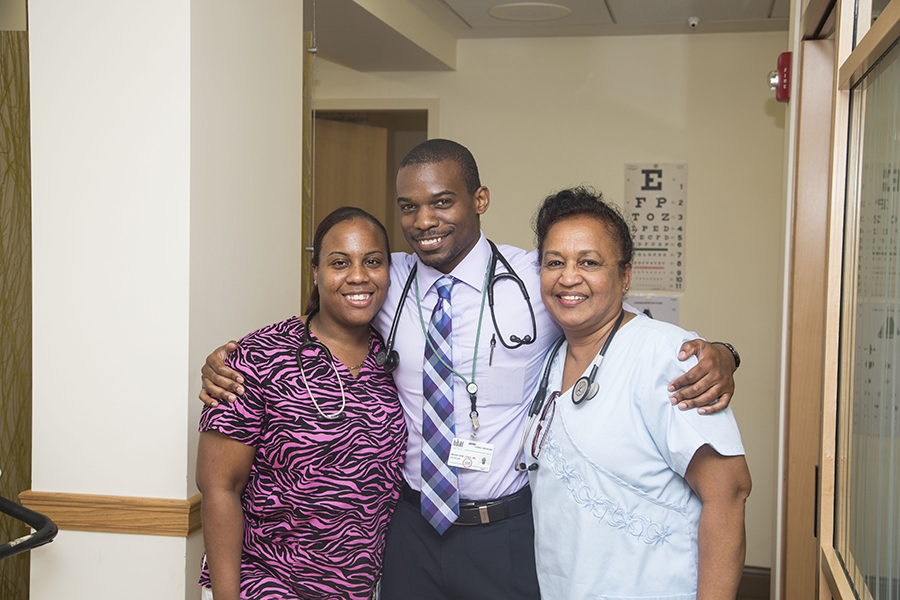Learning the Importance of Empathy in Healthcare
January 6, 2017
When I started my job last Fall as a Homeless Care Manager with the Community Health Practicum Program, I honestly did not know what to expect. On my first day at a homeless care site, I was pretty nervous. The first person I met when I arrived was the current case manager on site, Oscar Camillo. I asked him if I was in the right place (the clinic is situated in a basement of a church). He looked up from his lunch, and replied “yes,” with a smile. I told him that I was the new Community Health Practicum intern, and that it was my first day. He was excited about my arrival and was ready to help. That day, I met the rest of the homeless care team and my first impression was very positive.
Wow, they all seem really sweet, I thought to myself. As my days as the Homeless Care manager progressed, I started to realize that the homeless care team all had a particular value in common: empathy. Everyone — from the doctor to the medical assistant — seemed to care deeply about their patients’ well-being. It was pleasantly startling. In my experience working in medical offices and even as a patient, I had never encountered such dedicated and passionate health workers. The family doctors on the homeless care teams are truly one of a kind. Every single one, from Dr. Nicole Neretin to Dr. Kristen Semanision, is empathetic and compassionate towards their patients. Despite all the obstacles in the medical system hindering homeless patients from achieving quality care, they are relentless and will work with the social workers and case managers effortlessly to come up with a plausible solution. They truly want to help all of their patients.
My new colleagues have inspired me to approach my future patients with more empathy and care. Many doctors have become less concerned about their patients’ well-being, and more concerned about their own personal gain, whether it is prestige or profit. Patients would benefit from if more doctors were like Dr. Neretin, and Dr. Semanision. I hope to be a part of the new generation of medical students who bring back the traditional meaning of what it means to be a doctor, and to truly serve others.
Learn more about our health care for the homeless programs ; and read this blog post from our Medical Director of Homeless Services about her unique effort to go the extra mile for her patients.



